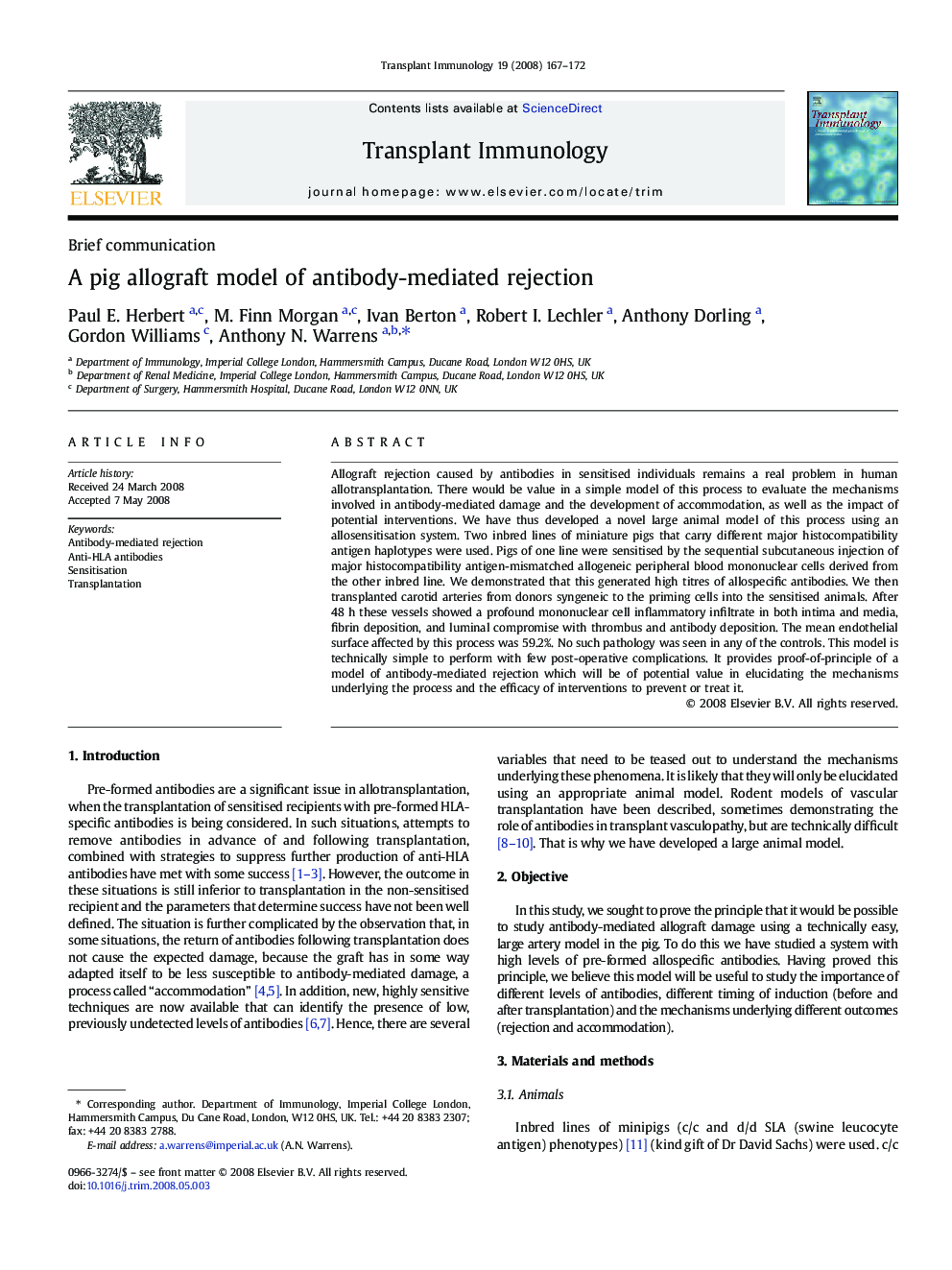| Article ID | Journal | Published Year | Pages | File Type |
|---|---|---|---|---|
| 3392570 | Transplant Immunology | 2008 | 6 Pages |
Allograft rejection caused by antibodies in sensitised individuals remains a real problem in human allotransplantation. There would be value in a simple model of this process to evaluate the mechanisms involved in antibody-mediated damage and the development of accommodation, as well as the impact of potential interventions. We have thus developed a novel large animal model of this process using an allosensitisation system. Two inbred lines of miniature pigs that carry different major histocompatibility antigen haplotypes were used. Pigs of one line were sensitised by the sequential subcutaneous injection of major histocompatibility antigen-mismatched allogeneic peripheral blood mononuclear cells derived from the other inbred line. We demonstrated that this generated high titres of allospecific antibodies. We then transplanted carotid arteries from donors syngeneic to the priming cells into the sensitised animals. After 48 h these vessels showed a profound mononuclear cell inflammatory infiltrate in both intima and media, fibrin deposition, and luminal compromise with thrombus and antibody deposition. The mean endothelial surface affected by this process was 59.2%. No such pathology was seen in any of the controls. This model is technically simple to perform with few post-operative complications. It provides proof-of-principle of a model of antibody-mediated rejection which will be of potential value in elucidating the mechanisms underlying the process and the efficacy of interventions to prevent or treat it.
